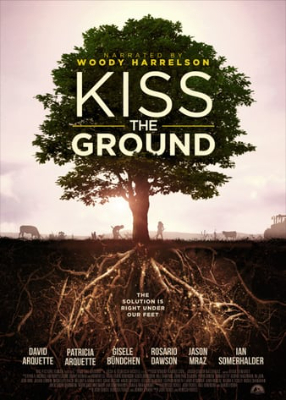
BFF’s Sally Faisandier has been watching the recently released documentary ‘Kiss the Ground’ (Netflix). It tells the stark story of land degradation as a result of industrialised or intensive farming in the United States and elsewhere.
It also explains how regenerative farming can help restore the environment and even address climate change by ‘drawing down’ carbon. Sally pondered what can be taken from it in the New Zealand context, where our history and approach to farming has been quite different.
‘Kiss the Ground’ tells the story of soil in an accessible and appealing way. Suddenly, we realise that nurturing soil’s ecosystem is the foundation for regenerating our landscapes; and improving the quality of life both for those who steward the land, and all of us who eat from it.
Shane Ward and Dr Hugh Jellie are both members of BFF. They saw the film, and believe the message is relevant here, too. Shane suggests that viewers not so familiar with regenerative agriculture can easily see what can be achieved; and Hugh adds that the film presents reputable people who approach science and farming in the traditional manner (through observation, trial and error), and how they have recorded significant improvements to the health of ecosystems through their regenerative methods.
The strength of the film is that it does a great job of contextualising the current state of agricultural soils impacted by the dominance of industrial monocultures around the world. It shows how agriculture got to where it is now, and emphasises the importance of what we eat and how we use our land.
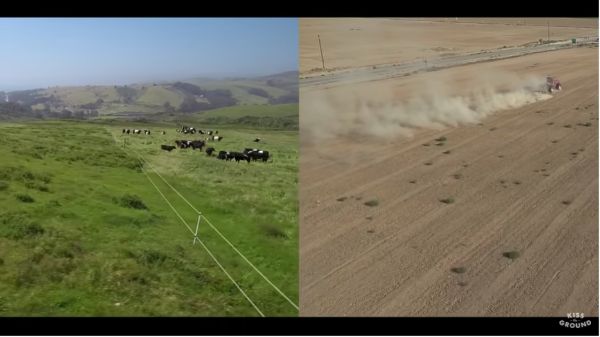
Some noteworthy details mentioned in the film include:
- The critical differences between ‘soil’ as a living ecosystem; and lifeless ‘dirt’ (see above)
- How the great ‘dustbowl’ of the American Northwest was created, and how 60% of the world’s soil is turning to desert.
- The history of pesticides,* which were first introduced by the scientist who developed the poisons that killed millions of Jews in WWII; and synthetic nitrogen fertiliser by Haber / Bosch while making explosives. (*Sometimes referred to as ‘biocides’ because they kill not just the target ‘pest’ species, but also ecologically vital species such as pollinating insects)
But the film has a positive focus. It provides numerous examples of environmental scientists, politicians, farmers and activists whose focus on soil health has an additional benefit of sequestering carbon. For example, the French Minister of Agriculture introduced the ‘4 per 1000’ initiative in 2015, where most countries in the world – including Aotearoa and Australia – signed up to increasing the carbon absorption of the soil by 0.4% per year.
Against the backdrop of death and destruction of the soil in most parts of the world, the film provides hope for the future:
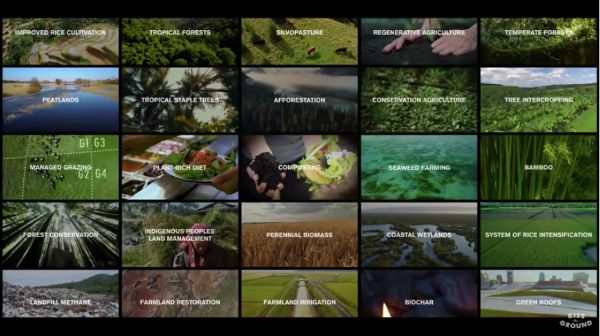
- John D Liu showed how the Chinese restored the Loess Plateau (an area of 400,000 km2) from desertification to productive landscapes in the space of 14 years.
- A North American farmer who had hit the wall financially tried regenerative farming in desperation; and transformed his farm into a productive business.
- Regenerative experts explain that healthy soil can make a major contribution to drawing down Carbon, and thereby mitigate against climate breakdown.
We have only had a short history of agriculture compared with much longer legacy of many other regions of the world, and our farming systems are quite different from those portrayed in the film (primarily in the United States). However, we have our own bleak statistics, with 192 million tonnes of soil lost every year from erosion, and overstocking that compacts the soil, leads to water pollution, and requires imported feed to support. Therefore, continuing with current practices will eventually reduce the living ecosystems of our soil as in other countries. As Hugh Jellie says, “Regenerative farming has to become the basis of our farming practices, to protect our industry. It is that serious.”
Shane cites wide-ranging benefits from regenerative agriculture. From a farmer’s perspective, these include improving soil health; cleaning up watersheds; growing healthier crops; healing damaged lands; and reducing the need for fossil fuel inputs and biocides. In turn, these changes increase farm profitability and efficiency; build resilience to drought and extreme weather events; and support greater biodiversity (with its own positive impacts). Climate breakdown is already making food production harder, so these are very positive outcomes. So the carbon sequestering ability of regenerative agriculture is just one of many benefits, and is not its only purpose.
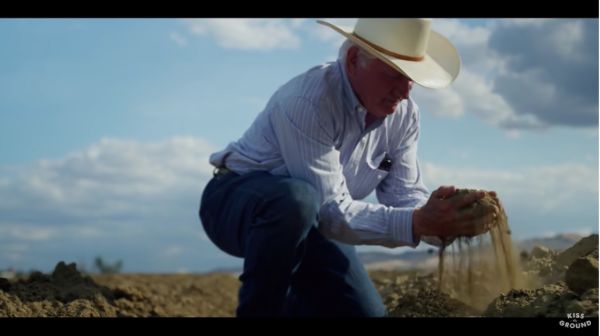
The Green Party proposes using $300m to support farmers to trial regenerative methods. While many farmers may need to be convinced that the economics of regenerative agriculture stack up, Shane strongly believes it holds the key to the future of agriculture in this country, and that no other method is able to provide food, fibre and fuel within ecological limits, on a long term basis. Manaaki Whenua/Landcare Research is taking the claims of regenerative agriculture seriously, and it currently has a research programme underway to ensure the evidence stacks up for environmental, economic and social benefits in Aotearoa.
Hugh would encourage farmers to just start with a small trial of one element of the regenerative methodology, and he has faith that they will eventually transition when they start observing and making changes based on their own experience. Also, he emphasises the importance of context, noting that every situation is different and there is no one size fits all, or a silver bullet. Instead, it is about following the regenerative principles, and creating the conditions to allow nature to do what it has done for millennia.
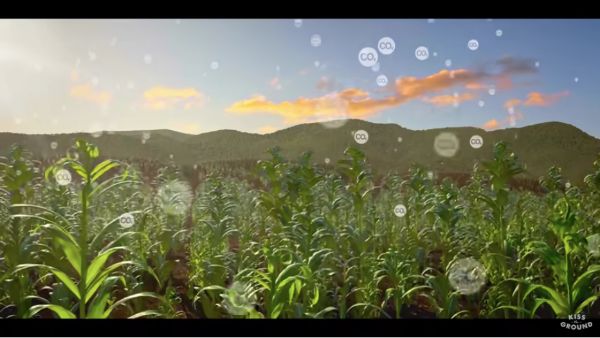
Farmers in Aotearoa have long been innovators in agriculture and some are already out there, showing how well regenerative agriculture works. For the rest of us, understanding the nutritional basis of our food is also important. I recommend you take a look at this film. It will get you thinking.
Originally published here.



 Eugene Doyle: The West’s War On Iran
Eugene Doyle: The West’s War On Iran Richard S. Ehrlich: Deadly Border Feud Between Thailand & Cambodia
Richard S. Ehrlich: Deadly Border Feud Between Thailand & Cambodia Gordon Campbell: On Free Speech And Anti-Semitism
Gordon Campbell: On Free Speech And Anti-Semitism Ian Powell: The Disgrace Of The Hospice Care Funding Scandal
Ian Powell: The Disgrace Of The Hospice Care Funding Scandal Binoy Kampmark: Catching Israel Out - Gaza And The Madleen “Selfie” Protest
Binoy Kampmark: Catching Israel Out - Gaza And The Madleen “Selfie” Protest Ramzy Baroud: Gaza's 'Humanitarian' Façade - A Deceptive Ploy Unravels
Ramzy Baroud: Gaza's 'Humanitarian' Façade - A Deceptive Ploy Unravels